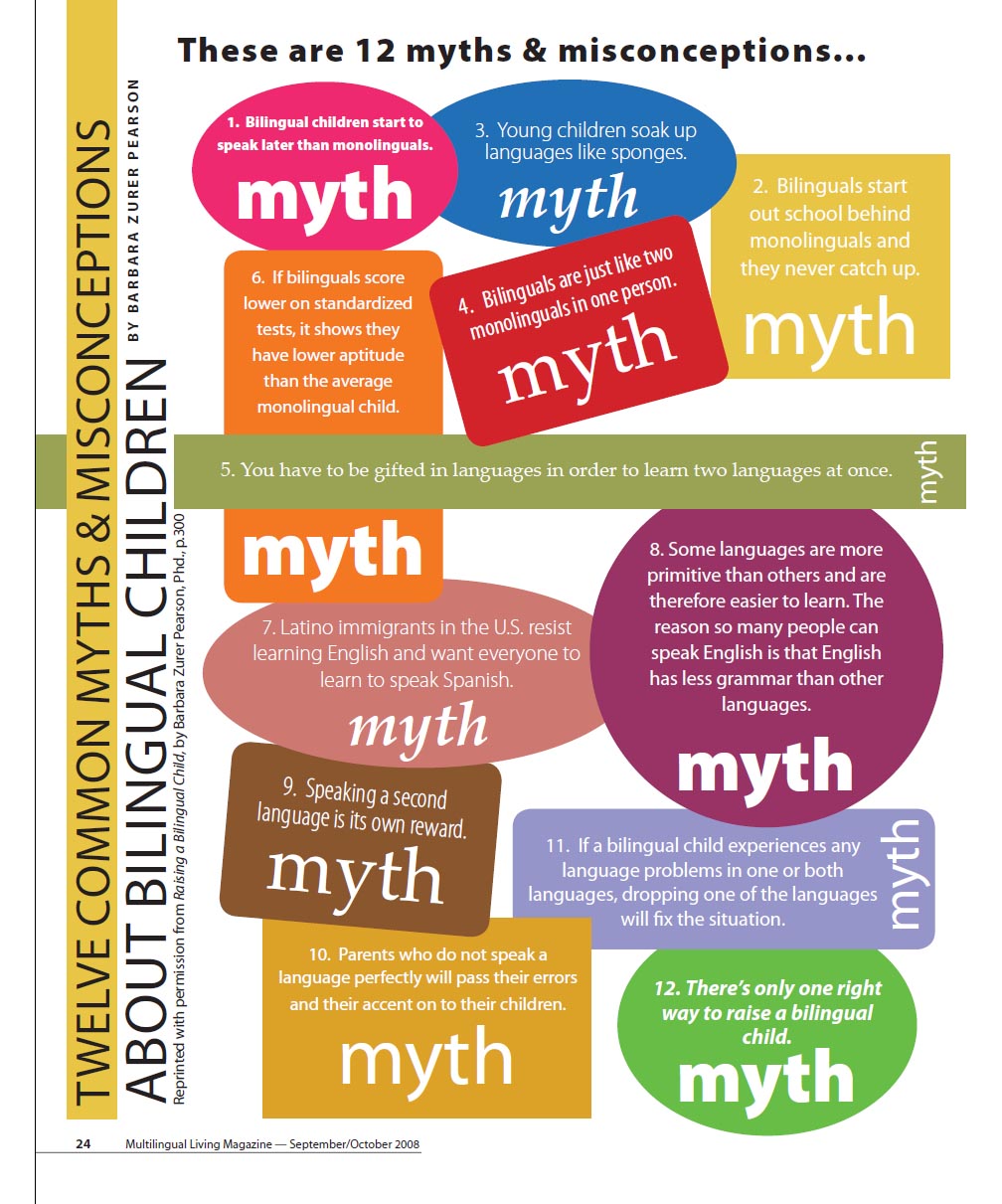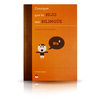|
|
Frequently Asked Questions and Answers |
Match the myths with what we know about them (from page 300, RBC) |
|
¡ ¡ ¡ ¡ ¡ ¡ ¡ Raising a Bilingual Child has been translated into Spanish ! ! ! ! ! ! Available now from BilingualReaders.com Mira el flyer for Consigue Mira el Flyer for RBC en español. |
Also--- a Translation of Chapter 1 into Polish Polish speakers, please check it out! (and let me know what you think about it.) |
QUESTIONS |

It seems like some languages are easier than others. For example, my child finds English easier than Spanish. What can I do to make Spanish easier for him? |

from KERA) When one parent is bilingual and the other isn’t, does that create a problem? Do you have any tips for handling that situation? |
SUGGESTIONS |

No language is easier or harder than another in the abstract. But as a matter of everyday reality, the language that is easiest for your child is the one she or he hears the most. It's the one where the coolest things are happening and it's the one that people he wants to speak with are talking.
|

This is a very common situation. It has the potential to interfere with your bilingual goals, but it need not do so. Until recently, the most often recommended arrangement for bilingual households was one-parent-one-language, so we know it’s very do-able. That can be two bilingual parents each speaking a different minority language, but most often it’s as you describe, one parent speaking a minority “foreign” language and the other speaking the majority language. Potential pitfalls: If one parent doesn’t understand what is going on between the other parent and the child, that person may feel excluded. (Or when we don’t understand what people are saying, we automatically think they are saying bad things about us!) If the parents are speaking two different languages with the child, they may have a harder time speaking with each other, because their “habitual languages” don’t match. One father in our Miami infant study felt so uncomfortable when his son was making so much more progress in Spanish than English, he got impatient and insisted they switch. Tips (to avoid an impatient switch):
|
| Guestbook Temporarily Disabled |
| YOUR TWO-CENTS: Email Me! |

